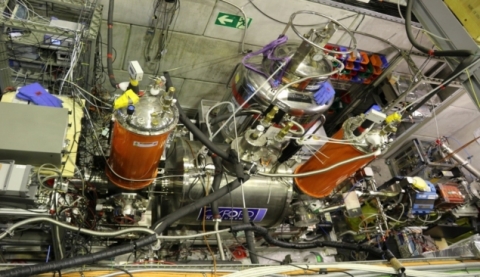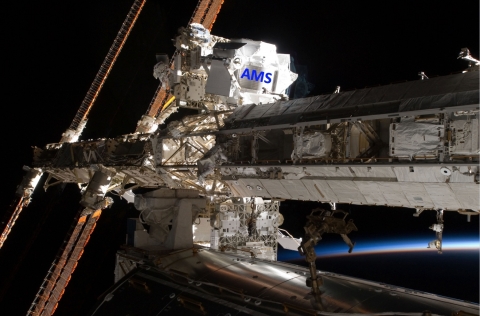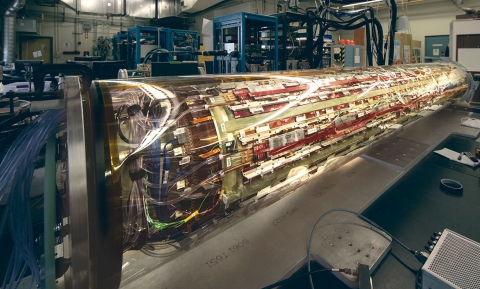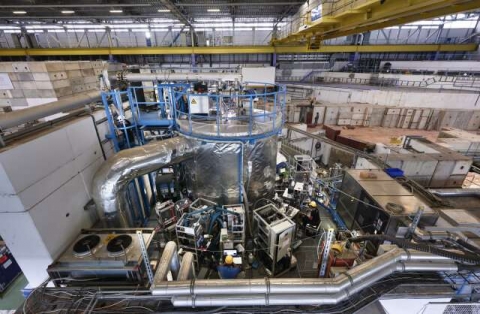SME
BASE develops a new technique to detect ultralight dark matter.
In a recent work published in Physical Review Letters [1], the Baryon Antibaryon Symmetry Experiment (BASE) at CERN has placed new limits on a possible coupling between photons and hypothetical axionlike dark matter particles with masses…
Read moreLatest Results from the AMS on the International Space Station
The Alpha Magnetic Spectrometer, AMS, is a particle physics detector operating on the International Space Station (Figure 1) since May 2011 with the aim to address long-standing open questions in fundamental physics, such as the matter-…
Read moreDo opposites attract? ALPHA-g prepares to explore antimatter gravity
Stuff falls down. This is the universal experience we all have with the gravitational interaction of matter on Earth. Yet one may still wonder if this holds true in the case of the most elusive stuff you can imagine dropping: antimatter. Might it be…
Read moreCLOUD experiment makes its own clouds to study
The Intergovernmental Panel on Climate Change (IPCC) recognizes aerosols (small nanometer to micrometer sized particles suspended in air) as the single biggest source of uncertainty in human-driven climate change. Atmospheric aerosol particles are…
Read moreALPHA publishes first measurements of quantum effects in antimatter
The ALPHA collaboration at CERN has reported the first measurements of fine structure effects and Lamb shift in the energy structure of antihydrogen that provide another test of comparison between antimatter and ordinary matter. The results,…
Read moreISOLDE dives deeper in the mystery of the odd-even staggering effect
In a recent paper, to appear in Nature Physics in the next weeks (arXiv:1911.08765v3), the CRIS collaboration, located at the ISOLDE facility in CERN, presents measurements of charge radii of exotic copper isotopes that shed further light on one of…
Read morePOLAR-2 project enters final design stage
The POLAR-2 project is a follow-up of the POLAR mission that was launched in 2016, mounted on the exterior of the Chinese Spacelab Tiangong-2. Following its application to the Recognized Experiment Committee earlier this year, it has been…
Read moreMUonE experiment gears up to chase whiff of new physics
A new proposed project, MUonE, was described on the EP Newsletter few months ago [2]. It is an experiment aiming at helping in understanding the long-standing discrepancy between the experimental value and the Standard Model (SM)…
Read moreCivil engineering for FASER
Civil engineering work to enable the installation of the FASER experiment in TI12, which is the former LEP injection tunnel from the SPS, successfully completed this month. The FASER experiment is designed to detect new physics particles…
Read morePUMA: Exploring exotic nuclear phenomena with antimatter
PUMA is a new experiment proposed at both the CERN AD and ISOLDE facilities, that would for the first time transport antiprotons trapped at AD/ELENA to ISOLDE, by carrying them in a trap loaded onto a truck. The antiprotons would then be used…
Read more



